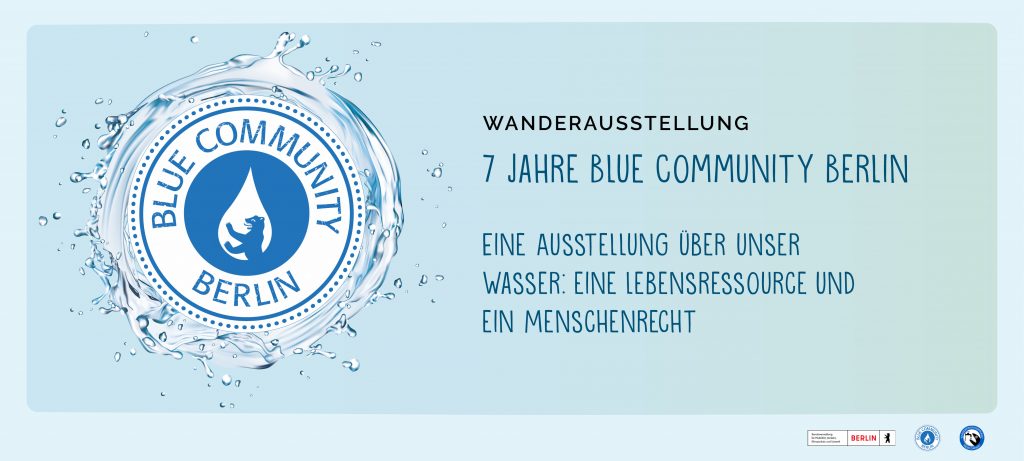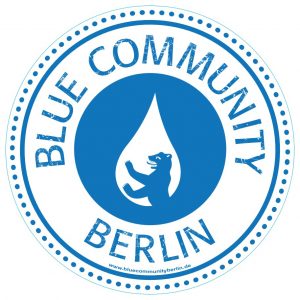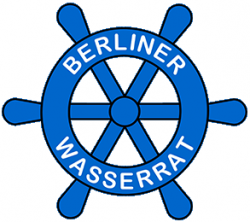Notes of Maude Barlow, 30th March 2017, Berlin
Eine Übersetzung dieser Rede ins Deutsche finden Sie hier.
AöW-Event “Water finds its way every time! Protect the resource – Protect the common good!”
WASSER BERLIN INTERNATIONAL
I am so happy to be with you Christa and all the wonderful people of the Alliance of Public Water Management to celebrate your 10th anniversary! Your organization and work is watched and modelled all over the world.
Why does it matter if water is a commons or a commodity? This is the central question of our time when it comes to the world’s water resources. It very much matters!
First, because the world is running out of accessible water. The UN reports that demand for water will increase by 55 % over the next 15 years. By that time, time global water resources will meet only 60% of the world’s demand. This is a recipe for disaster. The water crisis could affect as many as 7 billion people by 2075. Africa, India, Middle East, Australia in crisis but so are “water rich” countries China – since 1990, over half the rivers have disappeared Brazil – massive drought in South due to destruction of the Amazon North America – many states in crisis, Ogallala, California, Great Lakes could disappear in 80 years – groundwater study If we accept the argument that the best way to deal with this crisis is to take water into the market economy and sell it like oil and gas, we move the care and protection of water out of the hands of people, communities and governments and into the hands of private capital where the profit motive must take precedence. Protection of the planet’s dwindling water will plummet.
Second, it matters if water is a commons or a commodity because the lack of access to clean water and sanitation is the greatest human rights abuse of our time and about to get much worse as the water tables decline.
Currently almost 1 billion people have no access to clean water and 2.5 billion – no
access to adequate sanitation. I was in one slum in India where 5,000 people
technically “shared’ a toilet.
Close to 3 million people – mostly children under 5 – die of waterborne disease every year and more than half the hospital beds on Earth are filled with people suffering from this condition.
Lack of clean water kills more children than all forms of violence including war.
In 2010, the UN General Assembly finally recognized the human right to water and
sanitation – an historic breakthrough in which the human family took an evolutionary step forward.
The campaign to have water recognized started at least two decades ago but it was a
fierce fight Huge backlash – big companies, World Bank, World Water Council, First World governments – Canada, US, Great Britain! (Germany was great – supported it from the beginning)
But people waged a relentless campaign and now all countries recognize this right.
As well, almost four dozen countries have either enshrined the right to water within
their national constitutions or framed the right within national legislation.
All of this is fragile and all of it is threatened if the control of water and decisions about access to water are turned over to private transnational corporations who do not see it as their role to provide water for the poor.
And don’t think for a minute that all these problems are far away.
We are all facing a “perfect storm” of declining water supplies, rising poverty levels and climbing water rates.
This has brought the issue to North America (Detroit) and Europe (austerity)
The World Bank and the big water utilities are still aggressively promoting private
water services in the global South Global bottled water sales are skyrocketing – 465 billion litres a year by 2020
Water trading is growing in many countries – a process where water permits are
converted to water property that can be bought and sold on the open market.
Water pollution trading is growing – this allows polluters to continue to pollute by
paying for or trading the right to maintain their current levels of pollution.
And trade agreements like CETA, TTIP and TiSA limit the ability of governments to
maintain water as a public trust, Or introduce new laws to protect watersheds,
Or return municipal water services to public management after failed privatization
attempts.
235 municipalities in 37 countries – including Paris and your own Berlin – have been brought back under public management. Under these new trade agreements, this would be very difficult to do.
Believe me I know. We in Canada are facing almost 2 billion Euros worth of NAFTA
challenges from American corporations, most of them over Canada’s higher
environmental standards.
Finally, we must keep water in public hands because the “perfect storm” I described
earlier threatens to bring deep global conflict around water.
In a February 2017 statement, Pope Francis reiterated his passionate support for the human right to water but added a dire warning: “I ask myself if, in this piecemeal third world war that we are living through, are we not going toward a great world war for water?” There is great potential for growing conflict, competition and even violence in our world as the waters become scarcer. Water disputes are looming – between nations, between rich and poor, between small farmers and agribusiness, and between thirsty megacities and rural communities and indigenous peoples.
But just as water can be a source of division, it can bring people, communities and
nations together in the shared search for solutions.
Water survival will necessitate more sustainable and collaborative ways of producing energy, growing food, and trading across borders. It will also require maintaining water as a public trust.
A world in which water is controlled by private capital would be a disaster for
international diplomacy in water-conflicted areas.
Two decades ago, I asked Oscar Olivera, the leader of the first “water war,” what it
was about water that inspired the kind of courage he and others had displayed in
standing up to the army in his country. At the direction of the World Bank, Cochabamba Bolivia allowed Bechtel to privatize and run its water services. The company tripled the price of water, making it too expensive for the majority of this largely indigenous, poor population. It even started fining people for capturing rainwater.
The people rose up against terrible odds; many were hurt, some were killed. But they did not back down and Bechtel was forced to abandon Bolivia.
Oscar was a shoemaker by trade and had never done anything like this before. But his anger at the injustice of this situation gave him courage he didn’t know he had.
“Why water?” he said, knowing I meant that there were many other terrible injustices his people, the Aymara, had endured over time. “Because water is life. Local water is personal. Mine, ours. How dare they claim it for their far away investors? And because I would rather die of a bullet than of thirst.”
Now we must do this right.
We need a new water ethic that puts water protection and water justice at the heart of all policy and practice. This water ethic must be based on the principles of water
justice, water sustainability, water sharing and public trust. Quite simply, water is the common heritage of all the people and of future generations.
Because it is a flow source necessary for life and ecosystem health and because there is no substitute for it, water must be regarded as a public trust and preserved in law and practice for all time. If we do it right, water will be nature’s gift to teach us how to live more lightly on the Earth and in peace and respect with one another.
THANK YOU
Quelle:
http://www.aoew.de/media/Veranstaltungen/2017/Notes_of_Maude_Barlow_30th_March_2017_Berlin.pdf
















